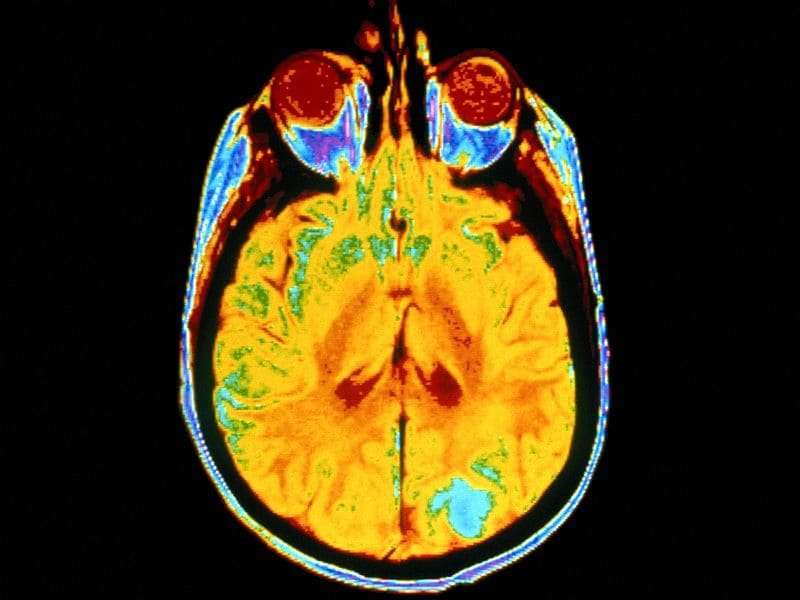Many RA patients' pain related to central nervous system

(HealthDay)—Centralized pain pathways may coexist with more established peripheral inflammation-driven pathways in some patients with rheumatoid arthritis (RA), according to a study published in the July issue of Arthritis & Rheumatology.
Neil Basu, M.D., Ph.D., from the University of Aberdeen in the United Kingdom, and colleagues performed an 11-minute functional connectivity magnetic resonance imaging (MRI) brain scan and a clinical evaluation, which included a measure of "fibromyalgianess" (FMness), on 54 patients (75.9 percent women) with RA. From MRI data, brain networks were isolated from functional connectivity. Then, individual patient network-to-whole-brain connectivity analyses were conducted, followed by group-level regression. This correlated the connectivity of each network with FMness, a continuous measure of the degree of fibromyalgia.
The participants had a mean FMness score of 13.2 (range, 1 to 29) and, using whole-brain analyses, the researchers found a single significant positive correlation between default mode network connectivity to the left mid/posterior insula and FMness. The investigators note that RA patients with increased levels of FMness seem to share neurobiologic features consistently observed in fibromyalgia patients.
"This study is the first to provide neuroimaging evidence that RA is a mixed pain state, with many patients' symptoms being related to the central nervous system rather than to classic inflammatory mechanisms," the authors write.
Several authors disclosed financial ties to pharmaceutical companies, including Pfizer, which funded the study.
More information: Abstract/Full Text
Copyright © 2018 HealthDay. All rights reserved.





















